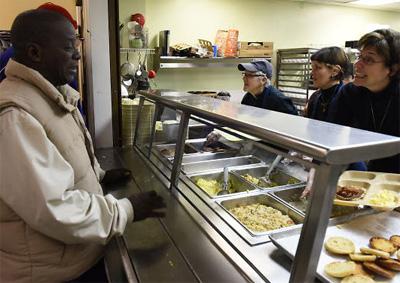Basic Info About Wasted Food and Faith Communities
Reducing, donating, and composting excess food is the right thing to do: both to protect the environment and care for the global human family. These actions divert wholesome food from landfills and incinerators, which reduces greenhouse gas emissions from landfills and waste combustion. They also help provide good, wholesome food to food pantries, kitchens, and directly to the world’s most vulnerable.
Reduce, Donate, and Compost
Reduce wasted food – Reduce the amount of food being thrown away.
Donate – Feed the community by giving excess or unused food to food banks, shelters, and soup kitchens.
Compost – Turn food scraps into nutrient-rich soil.
Minimizing Food Waste Results is a Triple Win
Good for Saving Money: According to a 2012 Natural Resources Defense Council paper, Americans spend around $161 billion a year on uneaten food. In the United States, wasted food is the largest component of municipal solid waste, which is a lot of food and money being thrown away. Small changes in food management practices can result in significant reductions in wasted food, which can make limited dollars go much further.
Good for Communities: Wasted food is a social problem - meaning 48 million people in the United States do not have enough food for an active, healthy life for all household members, according to the U.S. Department of Agriculture. Much of the food wasted in the United States is not waste at all but actually safe wholesome food that could potentially feed millions of Americans. Food donation is a simple way to redirect these valuable resources to “feed people – not landfills.”
Good for the Environment: Food disposed in a landfill quickly rots and becomes a significant source of methane, a powerful greenhouse gas that contributes to climate change. In 2013, landfills accounted for 18% of all methane emissions in the United States and wasted food is the number one material sent to landfills (21.1% in 2013). It is estimated that eliminating wasted food from landfills would reduce the same amount of greenhouse gas emissions as taking a quarter of all cars in America off the road.
EPA Administrator Gina McCarthy Visits Miriam’s Kitchen to Announce New Faith & Food Program
 Administrator McCarthy joined the staff in preparing a delicious salad from safe, healthy produce that the organization had saved from being wasted. EPA's Food Steward's initiative will help faith and community organizations take action on #NoWastedFood, to protect our environment and help make sure that good food gets to those who need it.
Administrator McCarthy joined the staff in preparing a delicious salad from safe, healthy produce that the organization had saved from being wasted. EPA's Food Steward's initiative will help faith and community organizations take action on #NoWastedFood, to protect our environment and help make sure that good food gets to those who need it.
 After getting briefed and helping prepare the food, the Administrator served breakfast to people who came here looking for a good, healthy meal.
After getting briefed and helping prepare the food, the Administrator served breakfast to people who came here looking for a good, healthy meal.
 Administrator joined Miriam's Kitchen and Western Presbyterian Church to announce EPA's new Food Steward's initiative.
Administrator joined Miriam's Kitchen and Western Presbyterian Church to announce EPA's new Food Steward's initiative.
